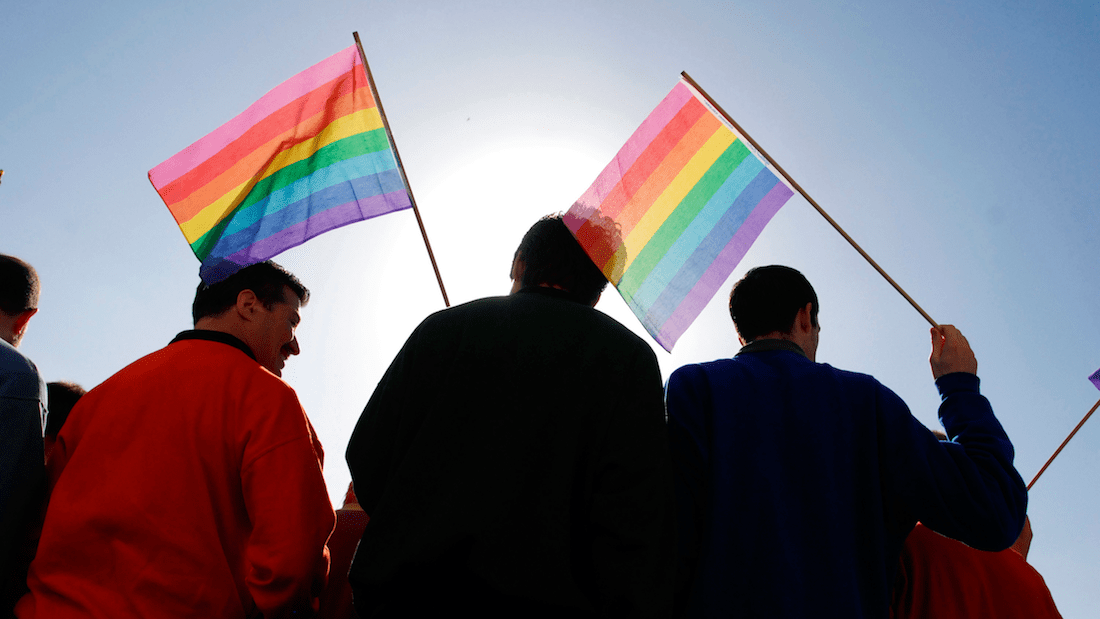As a queer Iraqi now living in London, I myself have found it difficult to access the circumstances of LGBTQI+ citizens within countries of conflict in the Middle East; media coverage on the issue is scarce. Just how little I understood was made clear to me only a couple of weeks ago, when I had the pleasure of meeting human rights activist Amir Ashour – the founder and director of IraQueer, an organisation that aims at increasing visibility, representation and awareness of LGBTQI+ issues in Iraq – at an event co-ordinated by the UK Lesbian & Gay Immigration Group on World Refugee day.
Amir is a wonderful and remarkable man; his organisation is the first to provide information, support, and a community for LGBTQI+ citizens living in Iraq and also seeking asylum outside the country. I, as someone from a conservative Arab background, had never, until being introduced to Amir, met another Iraqi so vocal and politically active about their queer identity. The real fact of the matter is that Amir is the only public LGBTQI+ Iraqi activist in the world, which points to how difficult it can be to live safely as an “out” queer Iraqi. His activism and visibility has meant that Amir is no longer able to enter Iraq, where his family still live.
In some parts of the country, if it is even discovered that you know a queer person, it can be very dangerous. One person’s crime was having long hair. All it takes is the perceived idea of someone’s sexuality.
Amir’s profile picture is the only one not masked by an emoticon avatar on the IraQueer website – for his colleagues to do their work in Iraq, they must retain their anonymity, as otherwise their lives would be at serious risk. Amir revealed to me that in some areas of Baghdad, names and pictures of LGBTQI+ citizens are listed on the walls of buildings, which results in them being found and often murdered. “In some parts of the country, if it is even discovered that you know a queer person, it can be very dangerous.” He further explained that on one of these “killing lists… one person’s crime was having long hair. All it takes is the perceived idea of someone’s sexuality, or the perceived idea of someone’s gender expression,” for them to be murdered. This offending ‘criminal’ was in fact married to a woman and had kids – simply the length of his hair was seen as a queer violation worthy of death.
With hiding your sexuality being necessary for survival, IraQueer do their best to aid LGBTQI+ citizens in Iraq. Linking up individuals who require sexual healthcare with doctors (who demand well above their normal fee on such occasions) is one such example of what they can do. IraQueer also works tirelessly to connect LGBTQI+ citizens in Iraq to form a community based on trust, in the hope to share information and help each other with safety. In what is an existence governed by fear, it is Amir’s intention to “establish trust among ourselves… to show that we all share the same fears, the same dreams. Once we have that we want to raise awareness among our community about our rights, who we are, and ultimately raise awareness among the general public on who we really are.”
Part of IraQueer‘s work is to create detailed reports about the treatment of LGBTQI+ individuals in Iraq, as a way to persuade the government to protect endangered individuals; one misconception is that homosexuality is criminalised by Iraqi law – there are simply no laws to safeguard the community, and a whole roster of general laws against sodomy that can be twisted towards their prosecution. The accelerating intolerance of LGBTQI+ citizens in Iraq is, it seems, occurring on a societal and domestic level.
No one understands the local context more than the people who are there. I can’t expect any person from the UK or US to go to Iraq and say ‘let me teach you about sexuality’… it makes us seem ignorant.
A huge part of the issue is that homosexuality has become viewed as a condition synonymous with Western Immorality. Amir explains that “Before 2003, everybody thinks that we did not have any gay people in Iraq, and that after 2003, the US brought homosexuality with them.” Further Western interventions in the Middle East have fuelled this belief – it is argued by some Iraqis that, “the lack of jobs is what is causing homosexual behaviour.” What’s clear is that queer communities in Iraq today are being scapegoated (like throughout much of history) by extremist ideologies against the West; Isis executions of LGBTQI+ citizens are growing at an alarming rate, with homophobic rhetoric just a part of their anti-Western hate campaigns. And anger towards Western ideologies among the general population is, unsurprisingly, given the destruction the West has caused — pretty potent; sadly, LGBTQI+ citizens are bearing a huge brunt of this burden.
Understandably, Amir and the team at IraQueer are reluctant to have any Western involvement with their work, outside of the financial kind. Amir rightly argues that, “no one understands the local context more than the people who are there. I can’t expect any person from the UK or US to go to Iraq and say ‘Let Me teach you about sexuality’… it makes us seem ignorant.” Such intervention would, according to Amir, “enforce the idea that homosexuality is a Western Export,” and would, ultimately, “disempower local citizens, and explain queer identity in a way that does not match with the local context.”
So I would encourage all reading this article to take a look at IraQueer.org to understand what it might mean to be LGBTQI+ in Iraq right now, and to see how Amir and the IraQueer team help individuals in the country live more safely. And of course – where possible – please donate to help their vital work continue and grow!
Credits
Text Amrou Al-Kadhi
Image via HRC
